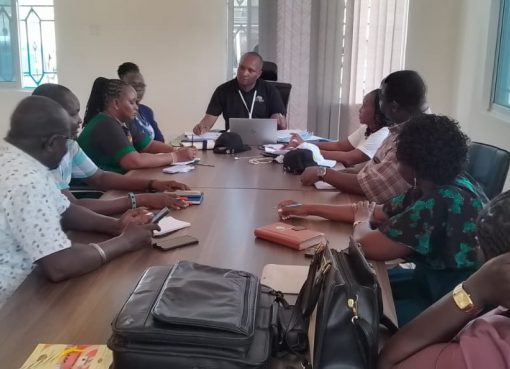The Ethics and Anti-Corruption Commission (EACC) is conducting a four-day training for County Executive Committee Members (CECMs), Chief Officers, and Heads of Department in Mombasa County.
The training will culminate with the unveiling of the County Corruption Prevention Committees (CPCs).
EACC intends to tutor the cross-sectional leadership in the county and conduct informative sessions on the effects and challenges of corruption on economic development, highlight the anti-corruption legal framework, and equip the executive members with corruption prevention tools.
Speaking during the training at the Travellers Hotel, Mombasa Deputy Governor Francis Thoya said that corruption in devolved units is a present and complex aspect that can be attributed to many factors, the key among the most being a lack of proper training in procedural and requisite processes.
Thoya said that graft cases are occasioned by the failure to adhere to set processes and procedures that, in most instances, are enshrined in law.
He added that ignorance or sheer disregard of the set parameters, especially in critical departments such as procurement, has led to massive losses in revenue and resources.
“We cannot overlook the need to acquaint our staff with the procedural prerequisites that are in place in key acts such as the Public Procurement and Asset Disposal Act and the Public Finance Management Act because these are the guidelines that dictate lawful processes,” Thoya said.
He added that Mombasa County is steadfast in capacity building for its staff, and the launch of the CPCs is a timely intervention that will see the devolved unit work hand in hand with key stakeholders such as EACC to tame the corruption scourge that is affecting many counties.
“The structures that we are putting in place through the CPC will have a ripple effect on the workings of the county in general. The capacity building of our staff in collaboration with entities such as EACC will go a long way in corruption prevention and better resource management,” added Thoya.
On his part, EACC Lower Coast Regional Head Mark Ndiema noted that extensive work has been put in by the commission to assist counties in curbing corruption, with Mombasa having shown exemplary willingness in partnership to train and equip its executive leadership.
He added that devolved units should have an open-door policy to allow entities such as EACC to assist in creating structures that will in turn form corruption-preventative mechanisms.
“EACC is only a lead agency in the fight against corruption, but we cannot go at it alone. We need the support of the counties and other stakeholders to realise a corruption-free country,” said Ndiema.
By Andrew Hinga





